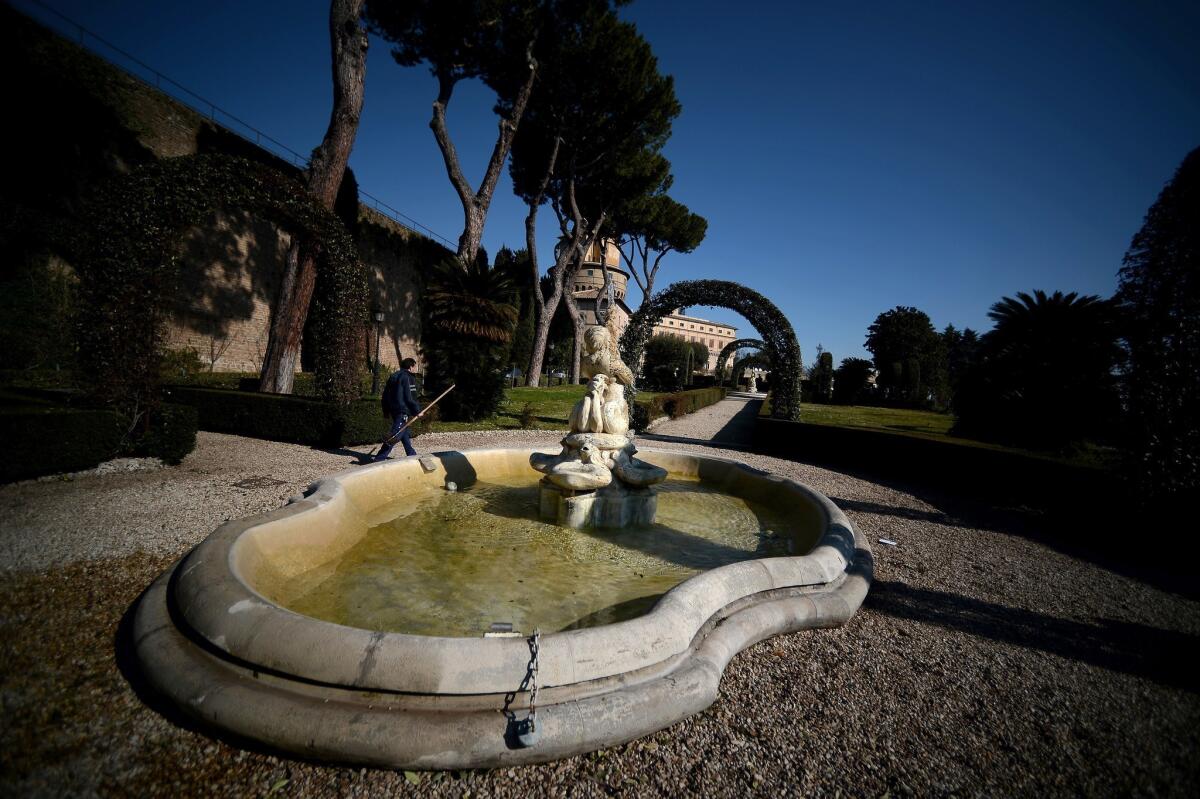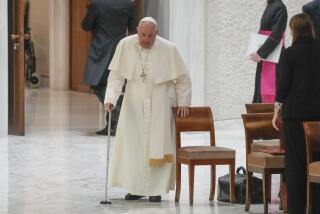Four floors, city views, garden: A retirement home fit for a pope

VATICAN CITY -- Spectacular views of Rome, stands of palm and magnolia trees, the Sistine Chapel close by -- these are the amenities awaiting the first pope to step down in more than 600 years after he moves into his retirement home this spring.
A week after Pope Benedict XVI shocked the world by announcing his resignation, hard-hatted construction workers were rushing Tuesday to ready his intended residence amid the perfectly trimmed lawns of Vatican City.
Chutes attached to windows of the four-story building were prepared to unload rubble as workers appeared to gut the building and perform a complete redecoration before Benedict starts a secluded life of prayer there.
On Feb. 28, his last day on the job, the pontiff will be flown by helicopter to Castel Gandolfo, the papal summer residence south of Rome. But when the builders are finished at the Vatican, probably by the end of April, he will take up residence in his new home, which once housed the Vatican’s head gardener.
The home is connected to a structure built on the orders of Pope John Paul II in the 1990s to house cloistered nuns.
Benedict, the lay nuns who assist him and his secretary, Archbishop Georg Ganswein, will take over the two buildings, which sit on rising ground toward the rear of the Vatican’s huge gardens, out of sight of the thousands of tourists and pilgrims visiting the Sistine Chapel.
The house’s roof terrace affords spectacular views of the garden’s pines, palms and magnolias to the cupola of St. Peter’s Basilica. Beyond, the city of Rome was framed on Tuesday by a backdrop of snowcapped Apennine peaks.
Gardeners were at work around the house trimming the large cactus plants that proliferate in the garden and that line the curving road down to the imposing offices of Vatican City’s administrators, which once accommodated visiting royalty.
Further down, toward the back of St. Peter’s and a gate leading out into the streets of Rome, is the Casa Santa Marta, a modern building that will house the 117 cardinals due to attend the conclave to elect Benedict’s successor.
“The cardinals used to stay in the Apostolic Palace here, but they were 10 to a bathroom and things got very difficult during the hot summer conclave of 1978,” said Benedikt Steinschulte, an official at the Vatican’s Pontifical Council for Social Communication.
During the conclave, vehicular traffic will be banned within the Vatican whenever the cardinals are on the move -- going to the Sistine Chapel to cast their ballots for a new pope or trooping back to the Casa Santa Marta for lunch.
The aim is to prevent cardinals from discussing the voting with outsiders. Tweeting has also been forbidden and electronic jammers will prevent them from using their mobile phones until Benedict’s successor is elected.
ALSO:
Italians hoping for a homegrown pope
Gunmen kidnap seven more French nationals in Africa
Facebook page in Mexico draws attention for posts on security risks
More to Read
Sign up for Essential California
The most important California stories and recommendations in your inbox every morning.
You may occasionally receive promotional content from the Los Angeles Times.










